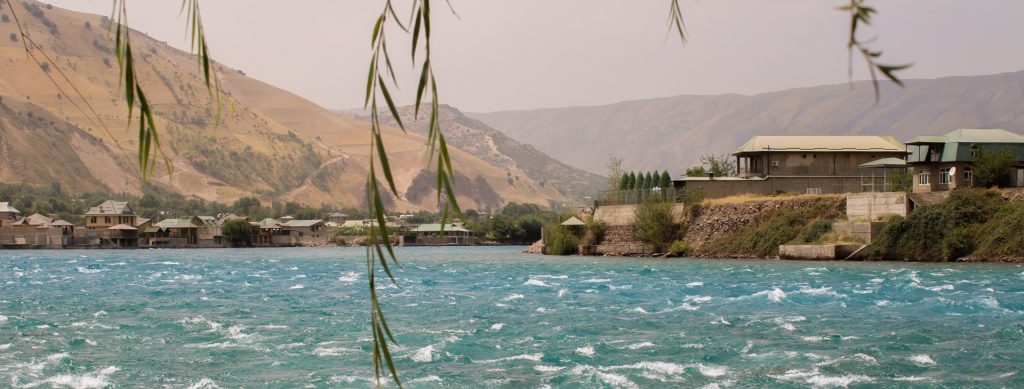D1: Environmental Change and Natural Resources Management in the Ferghana Valley
Nafisa Mirzojamshedzoda, MA (HNEE), Prof. Dr. Martin Welp (HNEE)

Foto: Ferghana Valley, Uzbekistan, 2021 © Nafisa Mirzojamshedzoda
Project description
What are the implications of environmental risks for security and cooperation in Central Asia? This project focuses on the social dimensions of environmental change as well as institutional water management practices and their potential to heighten tensions and generate conflict. The regional focus is the Fergana Valley and the transboundary river basin of Syrdarya that straddles Kyrgyzstan, Tajikistan and Uzbekistan. The study follows a systemic and participatory approach to analyse the role of environmental changes in interstate water resources management and cooperation in a local and regional context. In addition to the socio-ecological effects, the project explores institutional interdependency in a multi-level analysis of resource management. The emphasis is on local and region-specific forms of water governance in transboundary water cooperation.
The research project starts with systematic data collection and comparative case study analysis in Kyrgyzstan, Tajikistan and Uzbekistan through interviews on past and current trends in transboundary water management and environmental change. It continues by engaging relevant stakeholders (e.g. farmers, policymakers, experts, and representatives of NGOs) from these countries in focus group discussions and participatory workshops drawing on the MARISCO methodology (Ibisch, Hobson 2014). The research will yield insights into possible social-ecological risks and identify leverage points for the management of climate resilience and adaptation strategies.
Key questions
Methodology and sources
References
Ibisch, P.L., Hobson, P.R. (2014). MARISCO. Adaptive MAnagement of vulnerability and RISk at COnservation sites. A guidebook for risk-robust, adaptive and ecosystem-based conservation of biodiversity. (Last accessed: 7 January 2023).
International Alert (2022). Climate change as a trigger of border river conflicts in Central Asia. (Last accessed: 9 January 2023).
UNDP (2021). Climate Change and Resilience in Central Asia. Project Document. (Last accessed: 9 January 2023).
Project team

Nafisa Mirzojamshedzoda, MA

Prof. Dr. Martin Welp
Related publications

